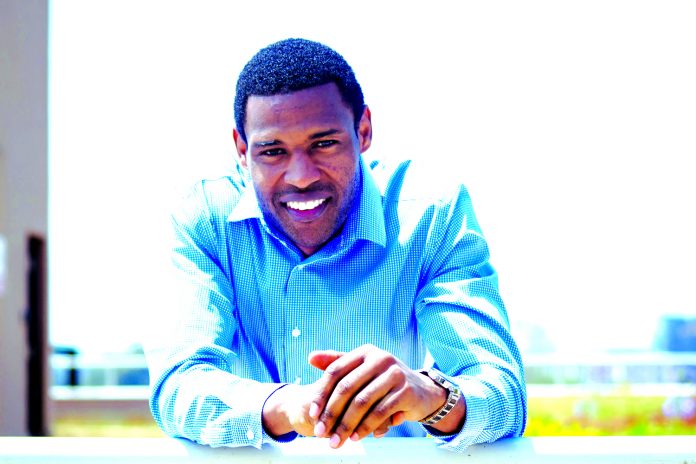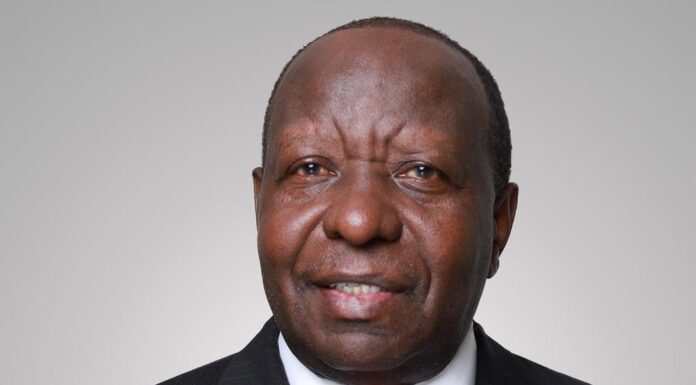Hair transplants are gaining popularity in Kenya
By Amos Wachira
If a receding hairline is giving you sleepless nights, Muli Musyoka IAT has a permanent solution for you.
He’s a certified trichologist, a hair and scalp specialist who diagnoses the causes of hair fall, breakage, thinning, miniaturization of hairs as well as diseases of the scalp. He then treats according to cause.
Trichology is the medical term for the study of the hair and scalp and all problems related to them. It’s a relatively new concept in the Kenyan market. Musyoka founded Hair Hub Clinic in 2014 to provide a working solution for baldness, which affects most people.
At his clinic along Ngong’ Road, Nairobi, he uses a trichoscope machine to diagnose patients. Working closely with a team of resident surgeons who perform procedures for hair transplants, he sees well over 1000 clients in a year.
As the old adage goes, fortune favors the bold, and Musyoka’s journey to the crest of entrepreneurial success is a product of boldness, ambition, and taking risks.
He hasn’t been a hairdresser all his life. His experiments with hair started way back after he completed his O’ levels in 2003. Like other young men, he had to look for ways to make ends meet.
He tried his hand in sale of second-hand clothes, sale of merchandise, and farming. When his first business ventures hit headwinds, he moved on into the hair care industry where his passion lies. A longtime volunteer of Kenya Red Cross Society, he says that the charitable organization was his launching pad for his career in the hair industry.
In 2006, he participated in the Mr. And Miss Red Cross. He was crowned Mr Red Cross, a fête that saw him embark on modeling and acting jobs. With his passion for hairdressing, he enrolled for a course at Ashley’s hair school.
After completing his studies, he worked briefly as a hair dresser before landing a hair technician job at Haco Industries.
It was during his stint as a hair dresser when he came face to face with the myriad hair challenges that affected a huge number of people.
Among these, balding was one of the most prevalent in men and women.
“Salonists were getting complacent. There were many hair problems that went unsolved. I resolved to get advanced training in hair and scalp and that’s how I bumped into trichology.”
He says he realized there were many opportunities in the hair industry that weren’t exploited as most people ignored the industry.
“Hairdressing was viewed as a course for people who have failed to qualify for degree courses. In other continents, it’s a well-developed industry that generates billions of dollars. That explains why trichology is a popular concept there, compared to Sub Saharan Africa where it’s a relatively new concept.
While working as a hair technician at Haco, he saw a gap in solving hair and scalp problems.
It’s out of curiosity that the youthful entrepreneur landed at the website of International Association of Trichologists and enrolled for a course in trichology.
Through correspondence and frequent visits to Australia, he was able to complete his studies in 2011. He says they were only six trichology students from Africa in his class.
With his newly acquired skills, he went back to Haco industries where he honed his skill even further.
Although he had a fulfilling job, he was unsettled; there was no solution in sight for most people with scalp and hair problems. As it was, the only advice that they could get from hairdressers was to try different chemicals, which ended up worsening their hair and scalp issues.
When Hair Hub Clinic opened its doors to its first customers in 2014, Muli’s dream was taking shape. He was on his way to providing a solution for hundreds of people who needed it.
With his trichology skills, he was ready to dive into the murky waters of business. But running a business wasn’t a smooth sail.
He had a plan. Start small, and then grow. It worked.
“I didn’t have an office and had to meet some of my clients in a restaurant,” he says. Entrepreneurs have a knack for looking for solutions. Without an office, he had a narrow reach and his business was bound to fail. An ingenious person, he convinced a friend to allow him use her office for hair consultations.
Using Facebook to advertise his services, he was soon on his way to building a large client base. Before long, he had outgrown the borrowed office and was moving to an office block along Kimathi Street in Nairobi’s CBD.
“From the onset, I knew consultations wouldn’t be a viable business, that’s why I created a business plan and stuck to it,” he says.
Raring to launch a unique service, he teamed up with one of his relatives, a neurosurgeon, and started to offer hair transplant services.
“Customers started streaming in and before we knew it, we had a thriving business,” he says.
Since then, his firm has grown in leaps and bounds, providing services to a huge list of customers spread across the continent. It also employs 11 people.
Despite the initial success, Muli wasn’t settled. He was on the lookout for new ideas that could propel his business to greater heights. Innovation is the lifeblood of successful entrepreneurs and Muli has proved that he has it in his genes. Working in the hair industry, he realized there were no hair care products that specifically served African hair.
Not one to shy away from opportunities, he decided to launch TRICHOFORT, a line of hair care products meant for African hair. His range of hair care products is manufactured in the US, where he has created a niche for his products and services. They are sold across the world. He also runs two hair care events, The Afro Hair awards and the Hair Raising Conference.
The award recognizes the most innovative hairdressers and enrolls them into an entrepreneurship course.
. Having progressively grown his business from an idea to one of the leading hair transplants service providers in the region, he plans to launch it this year.
In the meantime, he says his work is to demystify myths on hair problems, some of which are deeply entrenched in the African culture. For instance, in some cultures, baldness in men is a sign of wealth. In most cultures, people rarely associate common scalp and hair problems with medical conditions, and this is where trichology comes in. For instance, a poor diet can lead to hair loss, but rarely will a hairdresser be able to identify this without the necessary tests to establish the particular nutrients that are lacking.
He says that most unsuspecting patients waste their money buying chemicals instead of consuming basic micronutrients to maintain healthy hair.
Trichologists can only diagnose hair problems and are not medical professional. They work closely with doctors and surgeons who prescribe drugs and conduct surgeries on patients.
His greatest challenge when he was starting out was to convince people that he could reverse baldness, a huddle that faces most first time trichologists.
“Most people could never believe that we could reverse their baldness. They have since started to appreciate it as they can see the results.”
In Kenya, most young entrepreneurs are faced with a daunting task when it comes to sourcing funds to grow their fledgling businesses. When time came for him to grow his business, he was surprised to find that most financial institutions were not willing to finance his project. An innovative man, he found a way to organically grow his firm without external capital.
“For the last five years, I have managed to grow this business without any external funding from banks,” he says.
Hair transplants do not come cheap. In most developed nations, they are a preserve of the rich due to the astronomical prices involved.
Musyoka’s Hair Hub charges an average of Ksh100 per graft, with the prices going up depending on the number of hair follicles needed.
His competitive prices attract customers from all walks of life, including foreigners who fly in to get hair transplants.
While hair transplants are gaining popularity in SubSaharan Africa, they are yet to gain mainstream popularity. As one of the local pioneers in the field, he creates awareness through the media to educate people on hair care, hair transplants and scalp problems, while at the same time demystifying the myths that surround balding and hair loss.
Having tested the waters and found the business viable, he now wants to expand his business beyond the borders. “We are looking at a global impact. We want to have a world-class theater for hair transplants that serves clients from all corners of the world.”



















